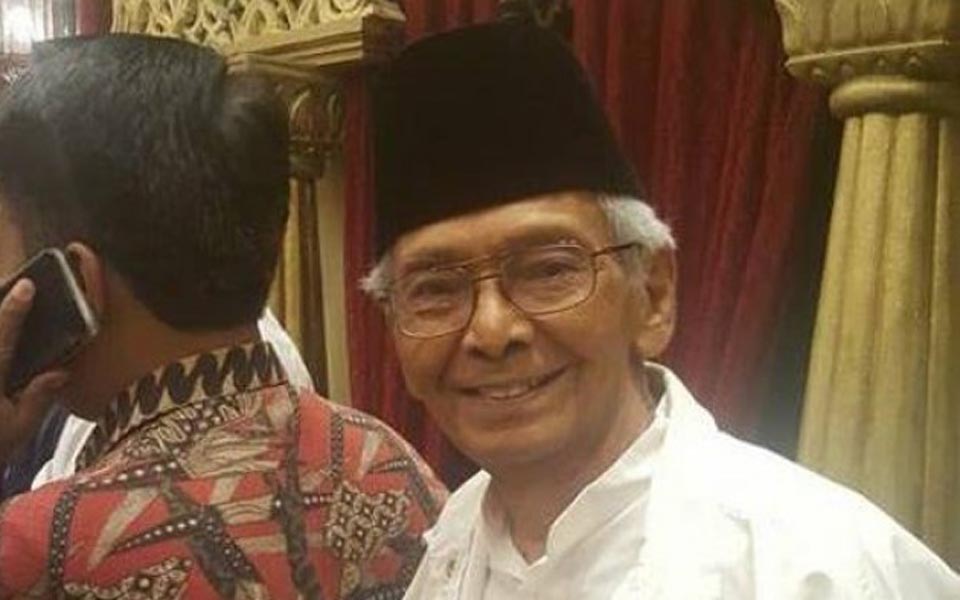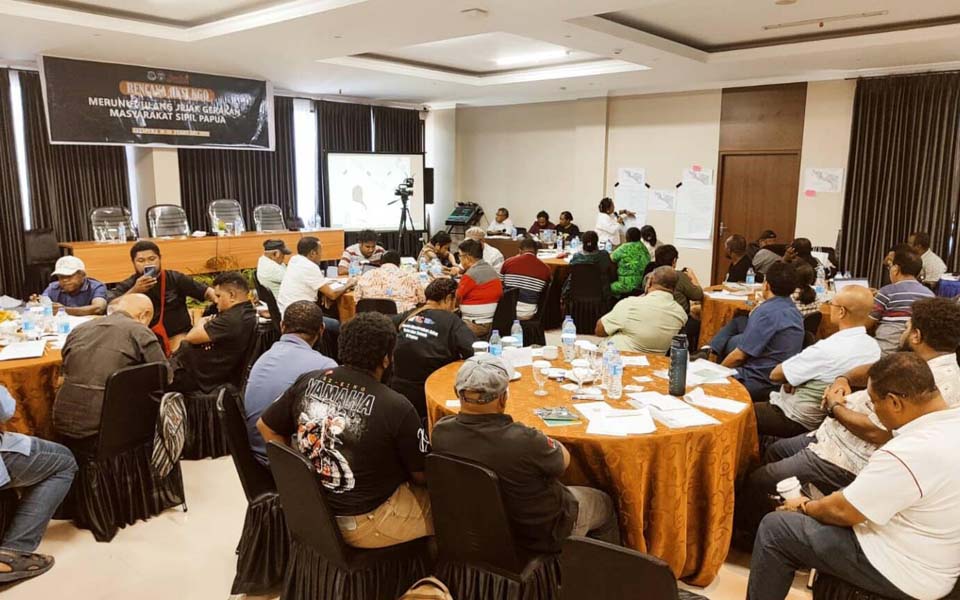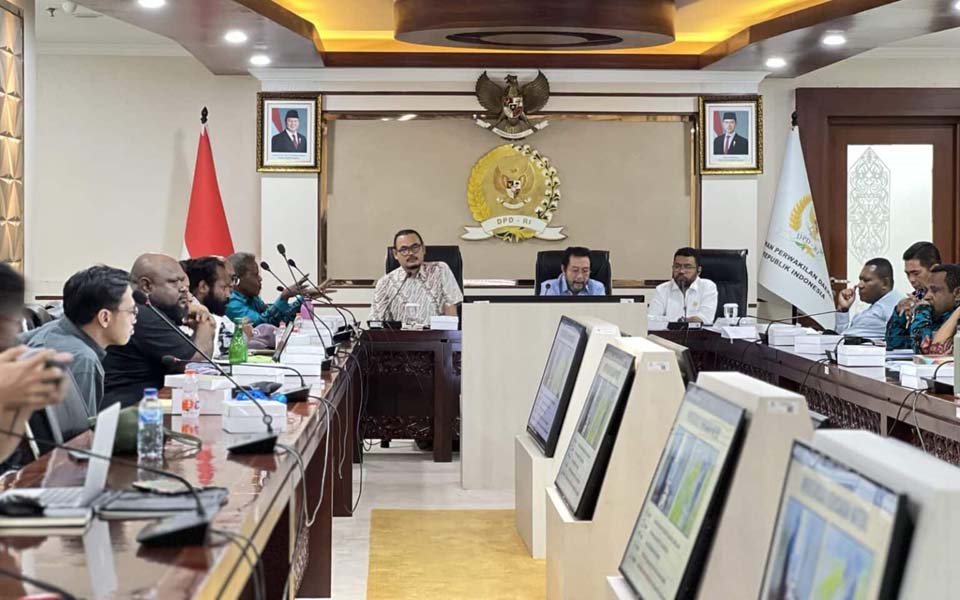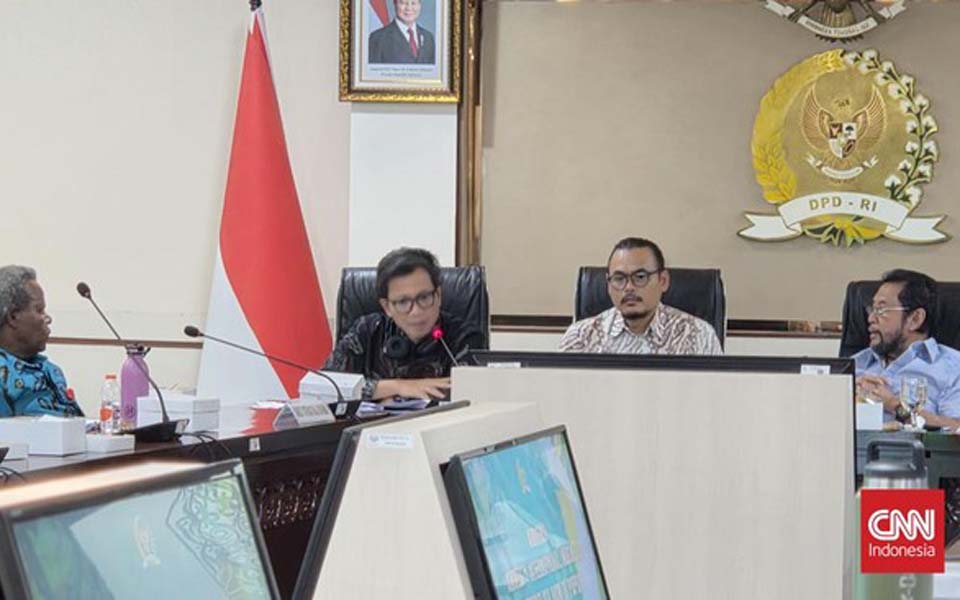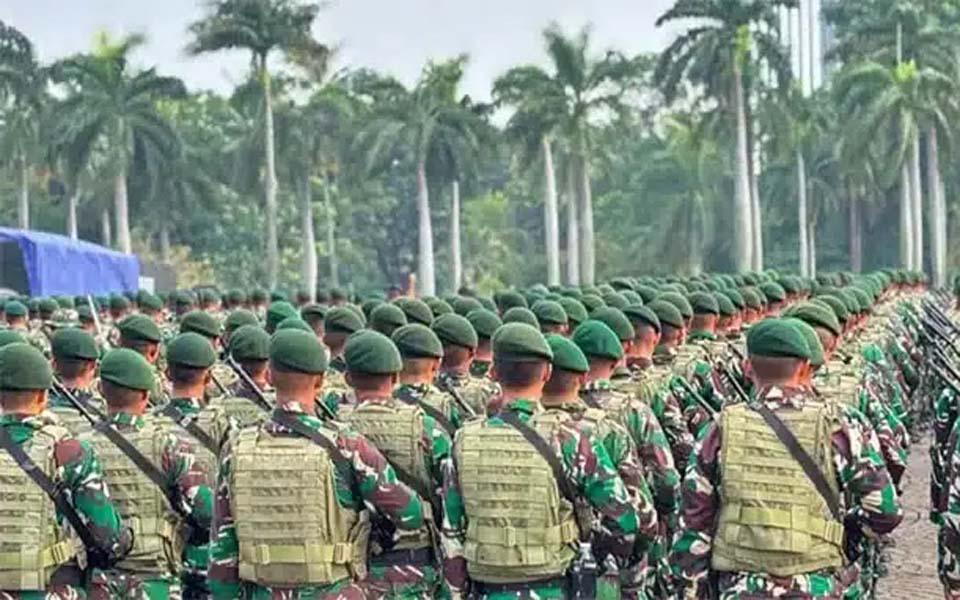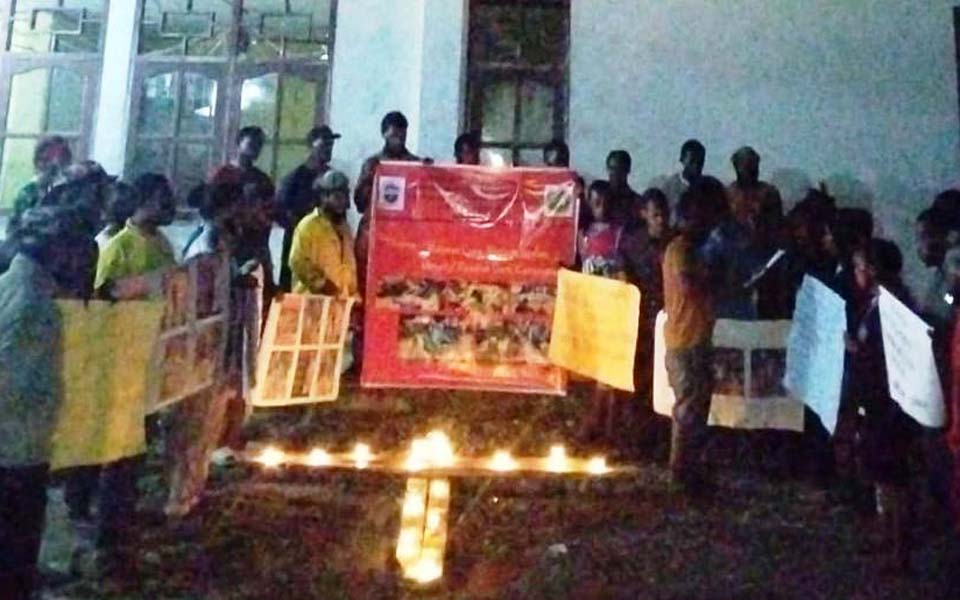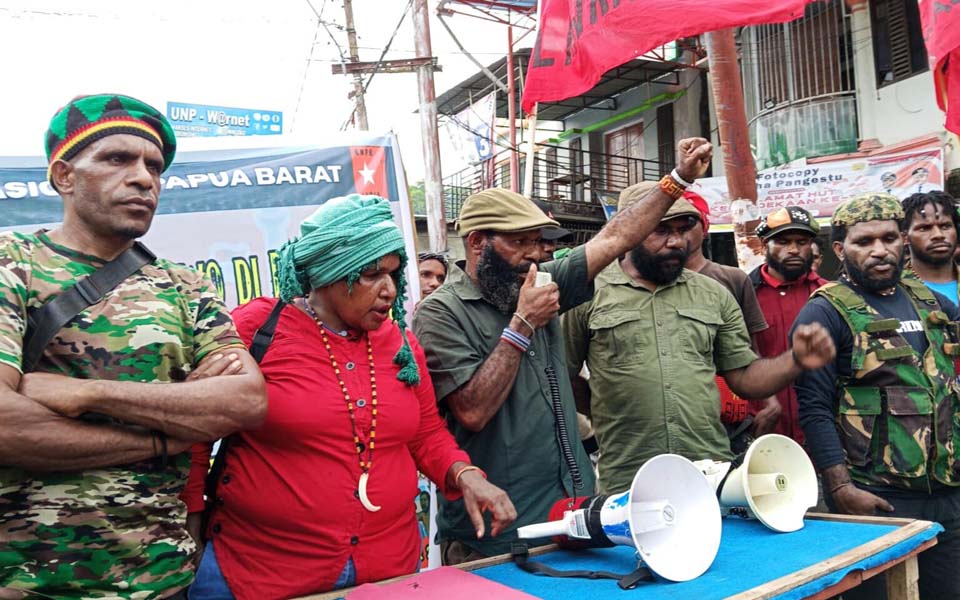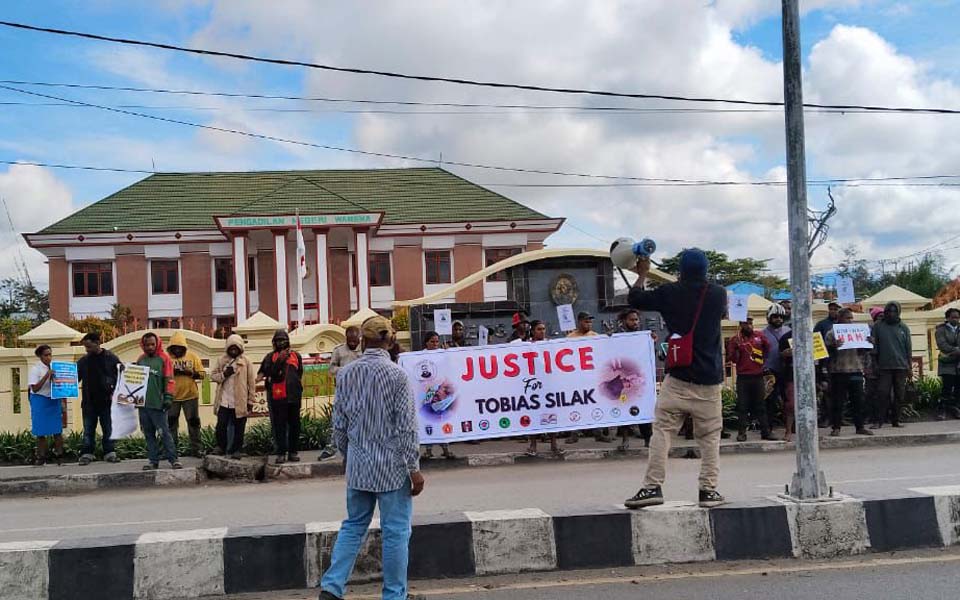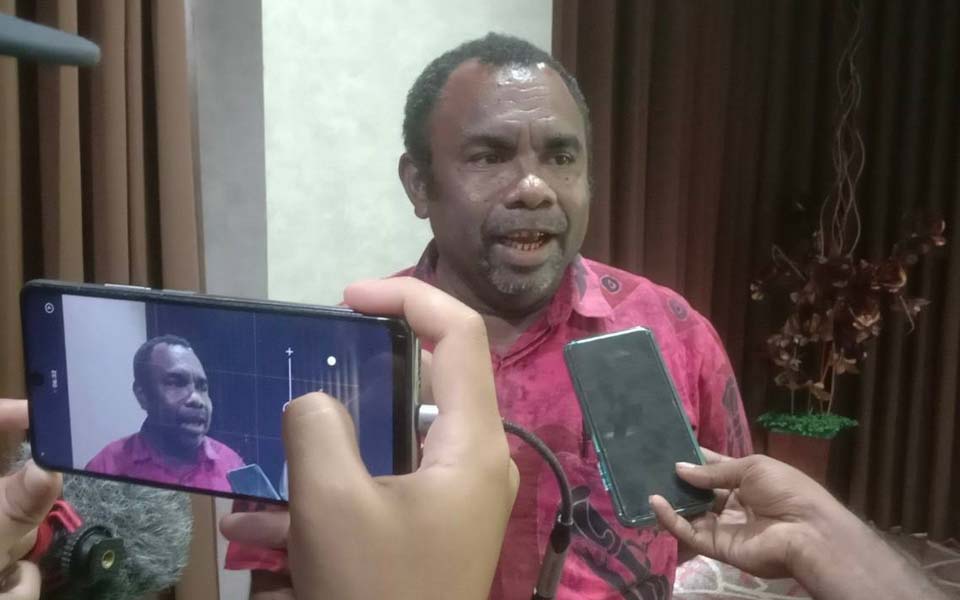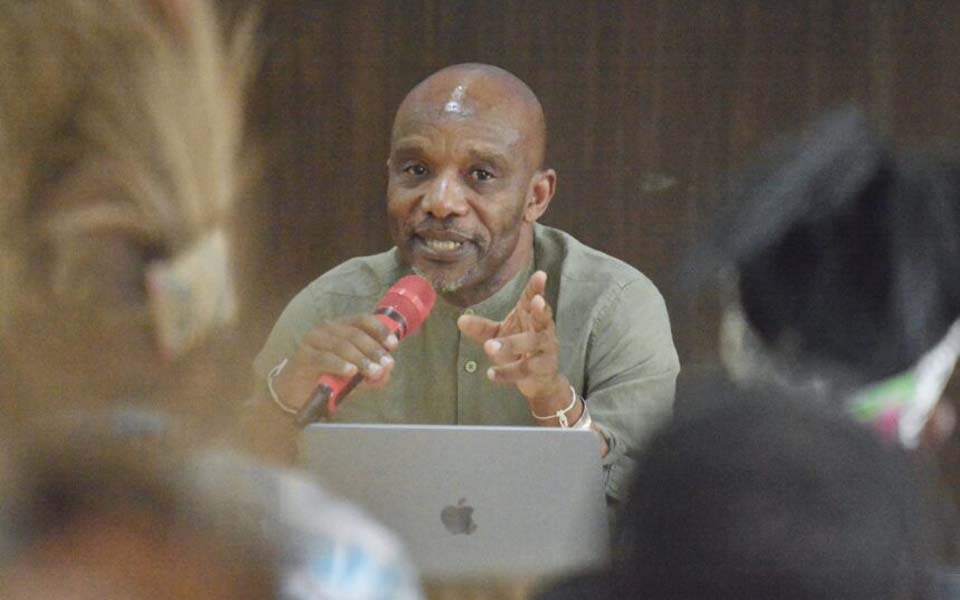Jakarta, Kompas – Even though Aceh problem has yet to be resolved, the Indonesian military (TNI) is now categorising the province of Papua as a trouble spot [because of efforts] to separate the province from the Unitary State of the Republic of Indonesia. The preconditions of these efforts to separate the province at the eastern tip of Indonesia are already visible, [and are] similar to the pattern [which was seen] in the province of East Timor previously. A number of foreigners are suspected of being involved in inflaming the situation.
The status of a trouble spot in Papua was raised by the had of the public information office of the TNI headquarters, Colonel D.J. Nachrowi at a meeting at [TNI headquarters] in Cilangkap on Wednesday (20/8).
“We have found many foreigners who are creating the preconditions in Papua who are working in the guise of journalists or non-government organisations (NGOs). Of the foreigners in the guise of journalists in Papua, we have recorded a total of 20 people. We suspect that they are carrying out intelligence duties there”, he explained.
Reflecting on this condition, TNI headquarters will open a media centre in Papua to provide information on the Papua situation to society. “We not want what is happening in Aceh at the moment to occur in Papua. Therefore, there are a number of preventative steps that we will take”, he explained.
Unlike Aceh, which for the last three months has been under a state of a military emergency, the conditions in Papua are far different and more dangerous if the demands for independence are raised.
Aside from the geographical conditions in Papua being more difficult, there are countries which are secretly providing support for efforts by separatist groups in Papua to demand independence. “The demands for a free Aceh has not obtained support from the international community at all. All foreign countries are on Indonesia’s side. But in Papua, there are countries which are secretly providing support for efforts by separatist there. This is dangerous and must be prevented immediately”, he said.
Related to the involvement of foreigners who are in the guise of journalists and NGO activists in Papua, TNI headquarters is in the process of compiling data which has been so far been obtained.
Within a short time, the preconditions which are being carried out by foreigners in Papua and the TNI headquarters’ data will be revealed to society.
If the situation in Papua becomes really critical, there is a possibly that an integrated operation will be carried out, as has been done in Aceh. Meanwhile, TNI troops such as the Marine Corps have already made preparations for an operation in Papua which could occur at any time.
Komnas HAM team arrives
Meanwhile, the National Human Right Commission (Komnas HAM) has formed the Papua Monitoring Team, which is investigating whether or not there has been human rights violations behind disputes and political conflicts in Papua.
The head of the team, Saafroedin Bahar, explain that between 7-14 September, the team will visit Wamena, Timika, Manokwari, Jayapura, and Merauke. As well as Saafroedin, the team is made up of Amiruddin from the Institute of Law and Human Rights Studies, Anshari Thayib and Mansour Fakih.
“The team will be divided into two and investigate if there has been human rights violations – both those which are coloured by regional land disputes and political [cases]. We are examining a total of seven cases, the most important case being the death of [independence leader] Theys [Eluey who was murdered in November 2001]”, explained Saafroedin at the Komnas HAM office’s on Tuesday (19/8).
According to Amiruddin, in Wamena the team will investigate a number of cases of houses being torched and the murder of residents, meanwhile in Timika and Jayapura it will investigate the shooting of residents. “In Merauke we will examine the social dispute between fisherpeople and Brimob [mobile police] personnel in the Kimaan sub-district”, he said.
Komnas HAM’s decision to form a monitoring team was criticised by the NGO National Solidarity for Papua (Solidaritas Nasional untuk Papua, SNUP). According to SNUP, Komnas HAM should not only form a monitoring team but strengthen the status of the monitoring team to become a Ad Hoc Papua Team.
In a press conference at the Jakarta Legal Aid Offices, SNUM though their working coordinator Reverend Emmy Sahertian said that “The government want’s to work with Komnas HAM to form a special Ad Hoc Investigation Commission for West Papua to investigate gross human rights violations which have being going on systematically and until this day have never been dealt with”.
It is estimated that over the last 40 years or since 1962, the number native Papuans have who have been killed has reached 100,000 people.
SNUP also urged the central government and the West Papua regional government to carry out a historical clarification, as included in Law Number 21/2001 on Papuan History, including on the act of free choice in 1969 [in which Indonesia manipulated and intimidated a carefully selected group of 1025 indigenous leaders to choose integration with Indonesia] and for a Truth and Reconciliation Commission for Papua.
“Without historical clarification, the social and political unrest in West Papua will continue to occur and will become the principle source of political conflicts”, he said.
SNUP also urged the government to demilitarise West Papua by withdrawing all non-organic TNI troops, together with responding the people’s demands that West Papua become a “Land of Peace”. (win/inu)
[Translated by James Balowski.]





